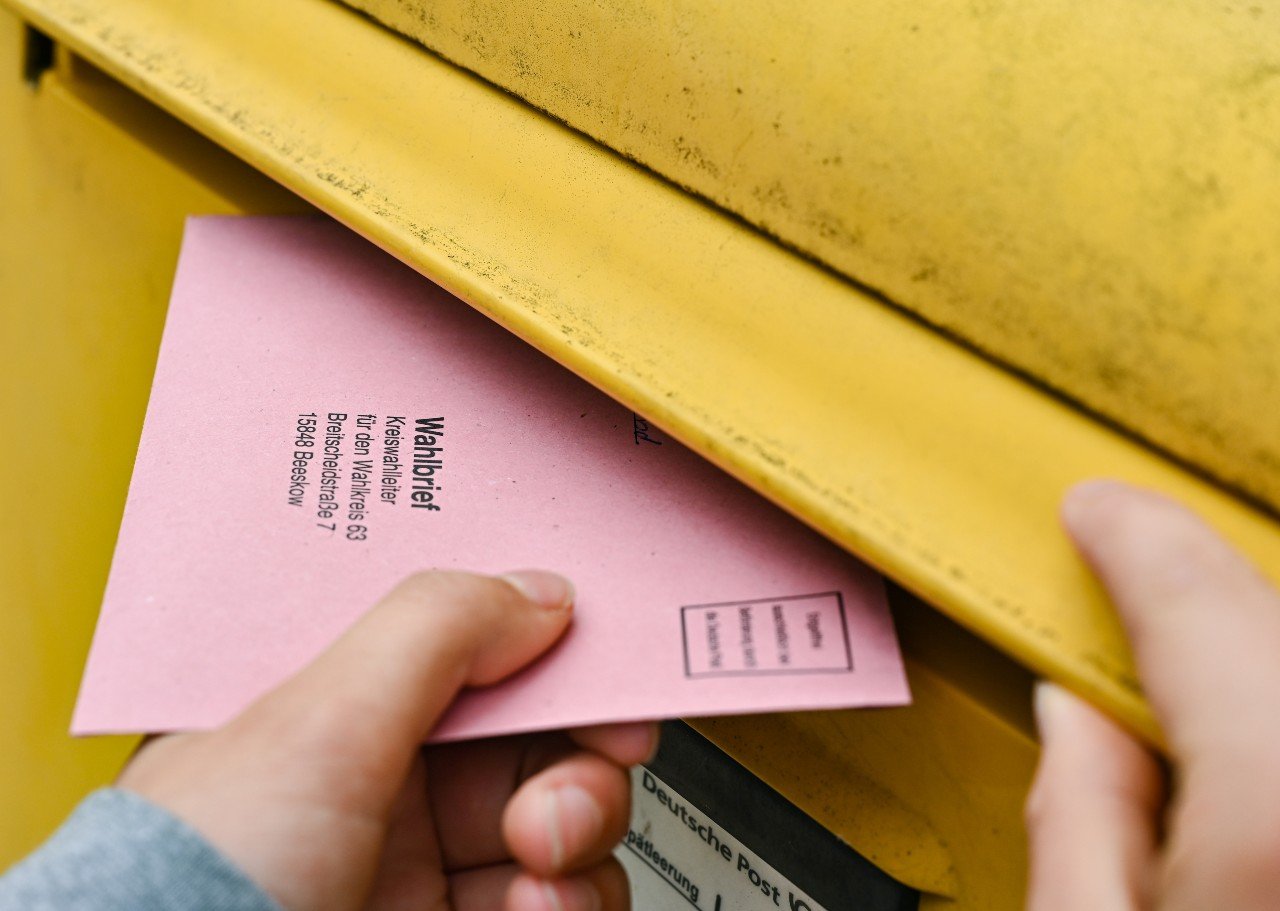Germany's snap election, which took place on February 23rd, was called after the downfall of the previous coalition government in November.
The tight deadline meant election officials had to act quickly to organise for Germany's population - both at home and abroad - to vote.
But new research by German media outlets NDR and Süddeutsche Zeitung has found that negligence, poor planning and slow delivery methods or 'snail mail' also played a role in the fact that many people with German citizenship abroad were not able to vote.
A survey of the 80 largest German cities showed that there were delays in getting ballot papers printed, and that documents for voters abroad were not prioritised sufficiently.
Meanwhile, in several cases, local authorities commissioned private service providers rather than Deutsche Post. These private service providers were found to have at times transported urgent voting documents in a roundabout way via a third country. The investigation said that this meant thousands of Germans living abroad were not able to exercise their right to vote.
The conservative CDU/CSU won the election with 28.5 percent of the vote, followed by the anti-immigration AfD with 20.8 percent and the centre-left SPD with 16.4 percent.
READ ALSO: How different groups of Germans voted in the federal election
How well were different German cities prepared?
The research highlighted how differently German cities dealt with printing and sending voting documents, with some getting the paperwork out to voters 11 days earlier than others.
The nationwide leader was Braunschweig. The electoral office there sent out postal voting documents abroad as early as January 31st - a day after candidates were finalised.
According to authorities Braunschweig, ballot papers were printed the night after they got the go-ahead and were immediately shipped to the 750 German expatriates registered in the city.
As well as good preparation, the city was also "lucky with the printers", according to local councillor Tobias Pollmann.
There were German municipalities that started preparing intensively for the new elections immediately after the 'traffic light' coalition - led by the Social Democrats - crashed, back on November 6th 2024.
Munich, for instance, was getting organised in November to send out voting documents. Officials sent out the postal voting paperwork to 11,000 Germans living abroad at the start of the first week in February, which meant that many voters, especially in other European countries, could be reached in time.

Numerous other cities were just as quick, including Cologne, Frankfurt am Main, Hanover and Leipzig. Just under 30 of the 80 municipalities surveyed managed to post the ballot papers abroad on February 3rd or 4th. Berlin sent the documents a day later.
But Germans living abroad who were registered in Hamburg were unlucky. The electoral offices there did not send out the ballot papers until February 8th, a Saturday.
Cities such as Bonn, Düsseldorf and Solingen were at the bottom of the list, only sending out the mail to voters abroad on February 10th. When asked, the cities concerned did not provide an explanation for the late dispatch and in some cases referred to the short deadlines for this election.
According to Düsseldorf city council spokesman Manuel Bieker, the ballot papers for the 3,000 registered Düsseldorf residents abroad were only available to the city at this time.
In some cases, the choice of shipping service provider was also problematic. Most local authorities sent the consignments with Deutsche Post, some even with DHL Express. However, a handful of local authorities - including in Halle (Saale), Nuremberg and Syke in Lower Saxony - commissioned companies to collect shipments from abroad and transport them to a third country first in order to send them internationally at more favourable conditions.
This led to further delays. But some local authorities said they were worried about Deutsche Post strikes.
READ ALSO: How warning strikes are affecting Germany's postal service and daycare centres
Major problems outside Europe
Voting was even more difficult for people with German citizenship outside Europe.
According to research, voting documents to the likes of the USA, Australia and New Zealand only reached recipients after two to three weeks, meaning that in the vast majority of cases it was too late to return them.
The Federal Foreign Office did offer special diplomatic couriers who accepted mail at embassies and consulates general. However, as the ballot papers often did not arrive from Germany in time, the last available embassy courier in many cases was already gone. Some Germans abroad commissioned private courier services for the equivalent of well over €100, only to find that the consignment did not arrive in Germany until after the election.
Some also got creative. At the end of last week, voters, including in Singapore and San Francisco, waited at airports for Germans who were flying back home and gave them their election letters.
Experts say reform is needed.
Robert Krimmer, a former professor of e-governance at the University of Tartu, Estonia, said: "Germany is simply one of the worst digitised countries in Europe. Of course, that doesn't stop at elections either.
"For Germans living abroad, an online election is certainly the best way to participate in the election...because the distance is very long, because it saves a lot of administrative work, because it also ensures that the vote actually gets through."
Constitutional law expert Sophie Schönberger from the University of Düsseldorf said, however, that online elections are not secure and are ruled out under German constitutional law.
She suggested that embassies and consulates abroad could instead be turned into postal voting centres "so that postal voting documents can be handed in and counted there".
Vocabulary
German national living abroad - (die) Auslandsdeutsche
Snail mail - (die) Schneckenpost
Shipped/mailed - verschickt
Good preparation - gute Vorbereitung
We’re aiming to help our readers improve their German by translating vocabulary from some of our news stories. Did you find this article useful? Let us know.

Comments